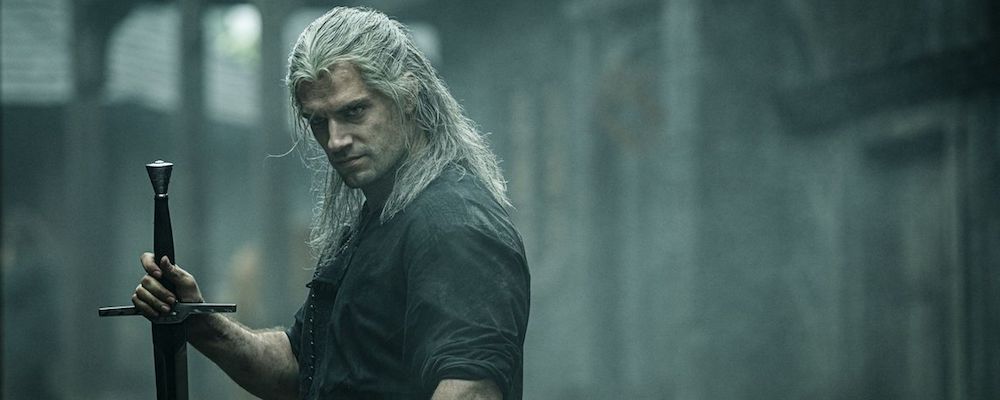Netflix Crafts Its Own Grand Fantasy With ‘The Witcher’
Alci Rengifo
How much you enjoy Netflix’s “The Witcher” might depend on just how invested you are in its genre. It’s a series tailored for a fantasy-chugging audience. Invented terms, places and customs are continuously thrown around, multiple epic storylines criss cross each other, and a fit lead wields a giant sword. This is the streaming service’s own pitch into the realm of fantasy TV and on a production level it doesn’t look too shabby. It’s in providing a story that doesn’t feel like a mere cosplay convention where it might falter.
Henry Cavill leaves behind the Superman cape and tights for long, silver hair and don medieval leather to become Geralt of Rivia, a “Witcher.” A massive guy with a big sword, Geralt works as a hunter of monsters. He’s a kind of mutated being, which means normal people shun him and his kind, but they still pay him to take down horrific creatures that like making appearances. In other parts of the realm Geralt inhabits dark forces are aligning. A young princess named Ciri (Freya Allan) flees a kingdom in flames after her royal parents are killed fighting off the Nilfgaardians. From among the peasants a deformed young woman named Yennefer (Anya Chalotra) is sold off by her father to the mysterious Tissaia (MyAnna Buring), a witch training other girls to wield magical powers. All of these storylines will eventually come together in a grand tale where Geralt will find himself in the middle.
It simply cannot be avoided to mention “Game of Thrones” when discussing “The Witcher.” Netflix, like Apple TV Plus with “See,” is obviously desperate to fill the fantasy void left by the groundbreaking HBO show’s departure. A key superficial similarity is that this series is also based on the bestselling series, namely the books by Polish author Andrzej Sapkowski. English-tongued viewers though may recognize the title from the successful video games culled from the novels. As developed by showrunner Lauren Schmidt, also a writer on Netflix’s “The Umbrella Academy” and “Daredevil,” “The Witcher” gets going as if it assumes only the big fan base is watching. It never takes adequate space to explain its world, politics or even geography. Complicated names for peoples and magical elements are spoken and thrown around without explanation, at times the dialogue is delivered in such a hurried tone you’re left wondering what exactly is happening. “The Witcher” is focused on establishing an aesthetic before the story, so the forests look lush, the costumes convincing, and the music score is strong. But the narrative struggles to be compelling. There is also the odd feeling of a show taking itself too seriously with material that calls for a more light, even satirical angle. Geralt kills a massive swamp monster in the show’s first scenes and it’s choreographed in a way where we should chuckle a bit, but it’s shot and played too straight. Other scenes are more unintentionally funny, like a battle scene where a royal simply yells, “we’re losing!” This before taking an arrow to the face.
“The Witcher” has a cast of strong actors who are left fighting and riding within an unbalanced approach. The first episode is too concerned with establishing Henry Cavill as a cross between “Lord of the Rings” and Conan the Barbarian. He’s massive, but serene, capable of slicing through a few backwards yokels as if they were mere sticks of butter. But he’s also fair, despite normal humans pelting him with stones and calling him, names, and offers a group of miners a good price to kill a local monster. Cavill doesn’t give Geralt much gravitas. His range is about the same as with Superman, clenched jaw and husky one-liners. MyAnna Buring has the essential ominous presence for a good villain, running her witch’s underground academy with gusto. These moments also have some more enjoyable fantasy offerings, like the girls being trained to literally capture lightning in a bottle. Among the rest of the cast the more likeable is Anya Chalotra as the hunched Yennefer, who must overcome physical limitations to become a wielder of magic powers. And she eventually will transform as the story requires into a more impressive character.
While “The Witcher” offers fun visuals, what it lacks in season one is a more fleshed out vision. “Game of Thrones” crossed genres and audience barriers because the fantasy elements were below the surface of an epic that was actually about politics, family, the human condition, and the weight of history. Consider the storyline involving Ciri, heir to the throne of Cintra. She’s merely a royal on the run, evading the Wagnerian-named Nilfgaardians. Both she and her pursuers are woefully underdeveloped. The season one narrative is missing more scope. As it continues it gets more action-packed and character-packed too, and while it won’t bore viewers who like clanging swords for their own sake, it will be a bit of a chore for others. Big time fantasy fans, or readers of the original books, will also like the addition of small details like Jaskier (Joey Batey), a traveling bard who walks by Gerart composing little tunes in his honor.
“The Witcher” looks great, bringing to life a fantasy world that promises a grandiose tale. With Cavill in the lead it delivers a star that fits the part, embodying the fantasy hero in a way longtime fans of this genre will appreciate. It’s one of those series that tries to pack it all into one season, so every level of fandom can find something recognizable. Yet binging “The Witcher” can feel to some like walking around a very expensive amusument park without a map.
“The Witcher” season one premieres Dec. 20 on Netflix.

